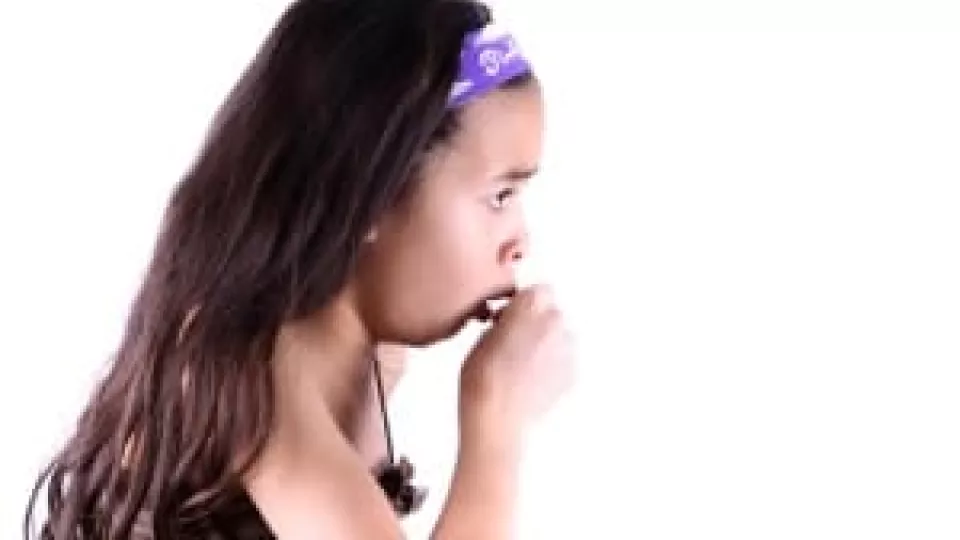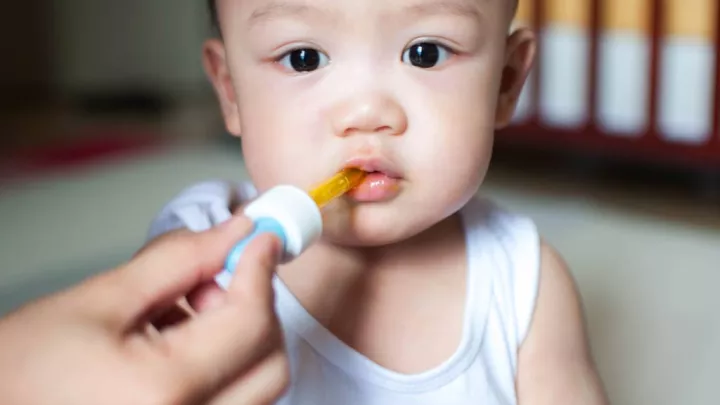
What Does Whooping Cough Sound Like? (Hint: You May or May Not Hear a ‘Whoop’)
Special thanks to Sindhu Mohandas, MD, an attending physician in the Division of Infectious Diseases at CHLA, for contributing to this article.
As a pediatric nurse at Children's Hospital Los Angeles, I get asked a lot of questions about whooping cough. The most common question is: What does whooping cough sound like?
I’ll get to that answer in a minute, along with links to videos so you can hear the sound firsthand. But first, you need to know something very important:
- Young babies with whooping cough don’t make the same classic “whoop” coughing sound that toddlers, children and adults make. And these babies are actually the most at risk for life-threatening complications from the illness.
First symptoms of whooping cough
Whooping cough, also called pertussis, is a bacterial infection in the respiratory tract (your airways). It causes severe coughing—and it’s extremely contagious.
For the first few days, whooping cough looks a lot like the common cold:
- Runny nose
- Mild cough
- Sore throat
- Mild fever
Whooping cough symptoms: children
After one to two weeks, severe, violent coughing episodes begin. The cough is due to lots of thick mucus in the lungs and throat, which can make it hard to breathe.
- In toddlers and children, coughing spells often last a minute or longer and can cause:
- A loud “whoop” at the end of the cough. This is the sound of the child trying to get air back into his or her lungs.
- Vomiting. A child may cough, make the whoop sound and then throw up.
- Bleeding. The coughing can cause bleeding in the eyes.
- A broken rib. Some children even break a rib from coughing so hard.
Whooping cough symptoms: infants
As mentioned earlier, babies—especially those younger than 2 or 3 months old—do not usually make the loud “whoop” after coughing. This is because they are not able to cough as well as toddlers, children and adults.
Instead, babies can have short periods where they STOP breathing. This is called “apnea.” The baby may gasp for air and struggle to breathe.
If your baby is showing these symptoms, you must seek medical help immediately.
Treatment: How long does whooping cough last?
The cough can last for 10 weeks or more. See a doctor right away if you think your child may have whooping cough.
Whooping cough is treated with antibiotics. Antibiotics will not stop the illness, but they may decrease the number of weeks your child is sick—from 10 weeks to six or seven weeks, for example.
Antibiotics also will make your child less contagious to others.
How to prevent whooping cough
The best prevention is vaccination. Here’s who should receive the whooping cough vaccine:
- Pregnant women, between 27 and 36 weeks of each pregnancy. This is critical—it provides some protection to the newborn before the baby’s first vaccinations.
- Any adult who will be caring for a young infant—even if the adult had the vaccine in the past. (The vaccine’s protection wears off over the years.)
- Babies and children: at 2, 4 and 6 months, 15 to 18 months, and 4 to 6 years
- Preteens: 11 to 12 years of age
Note: Don’t ignore the vaccination advice for adults who will be around a young infant. Often, when young babies come to the hospital with whooping cough, there is an adult in the family who has been coughing. Babies typically catch it from an adult. Final advice It’s best to avoid whooping cough altogether, so please get vaccinated. If you think your child may have the infection, see a doctor right away. And remember: a young baby won’t make the “whoop”!
Please help spread the word by forwarding this post to other parents. For more information about whooping cough, visit the Centers for Disease Control and Prevention or PKIDs.org.


